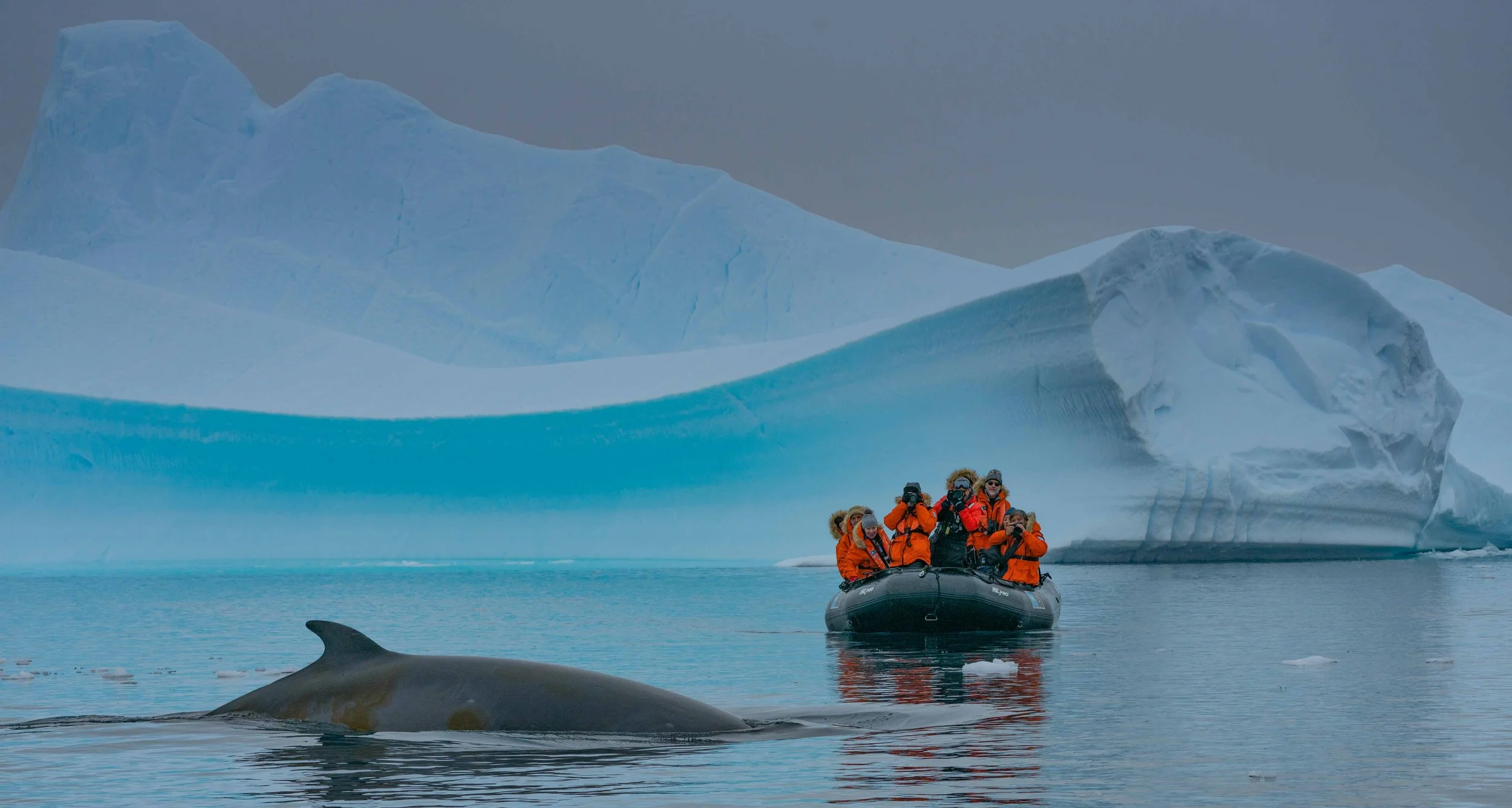Wanting to work in Expedition Travel but don’t know where to start? Start here!
EXPEDITION TRAVEL:
Unlike large cruise ships that are known for their size, capacity, and entertainment options, expedition ships offer a more intimate and immersive experience for nature enthusiasts. These smaller vessels, carrying fewer passengers, prioritize sustainability, conservation, and education. These ships are equipped with expert guides who provide in-depth knowledge about the local ecosystems, wildlife, and cultural heritage. The focus is on experiencing and understanding the natural world, with activities like wildlife spotting, kayaking, hiking. Expedition travel prioritizes environmental responsibility and educational experiences— so there will be lectures and field learning as entertainment instead of casinos or dancers. If you are interested in working aboard the ships, read through the info below!
CERTIFICATIONS:
Required certifications will vary by company and job roll. Each cert you can add will increase your chances of hire:
CPR/First aid
Wilderness First Aid
STCW (basic, crowd control, crisis management)
RYA level 2 or equivalent
Rifle training (specific for Arctic regions)
Divemaster for any SCUBA positions
JOB ROLLS:
There are SO many different job roles across the companies, and individual company pages will better outline their specific onboard roles. Some roles across the industry include:
General naturalist
Lecturer/Guest speaker
Photographer/Videographer
Dive specialist/guide
Expedition leader/Assistant expedition leader
Science coordinator
Kayak guide
Activities guide
Wellness specialist/Massage therapist
Historian/Cultural Specialist
Submersible Pilot (whoa!)
COMPANIES:
The expedition industry is rapidly growing and there are numerous companies you could consider applying to. Your best chance at getting into the industry is applying for multiple companies. Once you have worked within the industry it is easier to transfer between companies. You just need your foot in the door! Some companies (with links!) include:
Seabourn Cruises (they have an expedition line)
Hurtigruten Expeditions (great for German speakers!)
Ponant (bonus if you speak French!)
Note: These are just a few of many expedition companies, jump on a web search to find more! When you are Google searching for other companies or searching for job listings on pages like LinkedIn, a few keywords to search are “expedition cruise”, “expedition staff”, “expedition guide”. All of the companies will have 3 main types of positions 1) shoreside— usually bases somewhere specific with job roles including assisting with scheduling and other expedition logistics. 2) crew— these are the careers that keep the ship running like officers, hotel managers/hotel teams, galley teams, deck teams, etc. 3) expedition field team—these are the jobs such as naturalist and kayak job that I reference above. So if the latter are the jobs you are wanting, be sure to search for positions like “field staff” or “expedition” when job searching.
SCIENCE OPPORTUNITIES:
While many expedition companies run different citizen science projects, more and more ships are opening up opportunities for visiting scientists. Most of these opportunities would offer you a room on a ship in the area you are trying to study. You’d be responsible for carrying out your project/data collection while on board.
Viking has a new wet lab on their ship Viking Octanis and they often invite guest scientists to join their fleet as well as having an onboard science coordinator position if you are looking for a longer-term position.
This Explorer’s Club grant allows you to run your project off of a Ponant ship!
Yachts for Science partners scientists with empty/in-transit yachts.
SKILLSETS TO HIGHLIGHT:
Remember, this is ultimately tourism, so experience interacting with guests and engaging in conversation with groups is needed. You’ll often be required to dine with guests.
Your ability to teach/lecture. You’ll be speaking to both small groups in the field and larger groups in a lecture hall.
Being a team-player. Ship life is very confined and has finite resources. When there’s a problem on board, you’ll need to show up for the team to lend a hand, even if it is outside of your job duty.
Group management. You’ll be leading groups of people on hikes, boat tours, etc, so you’ll need to be confident in managing any problems that might arise on your own.
Enthusiasm/knowledge about the natural work and wildlife in the destination where you are applying. It’ll be part of your job to teach the passengers (and get them excited about!) the place you’re visiting.
Flexibility and problem-solving skills. Daily schedules rarely go to plan, so you’ll need to easily and quickly be able to adapt and redirect your group. And have a good attitude about it.
Water and navigational skills. Any experience navigating boats or wilderness treks is useful. You’ll want to know how to use a GPS confidently as you’ll be responsible for leading groups either by land, kayak, or small boat. If you have ever driven a boat before, definitely include that skill!
Want to learn more?
I love chatting to people about the expedition industry, my experience working in the field, and ways to join the industry. However, I get SO MANY emails and social media messages from people wanting to learn more. It’s too many to keep up with (eeeek, sorry!). But if you are eager to learn more, you can book a 1-on-1 consult with me!

